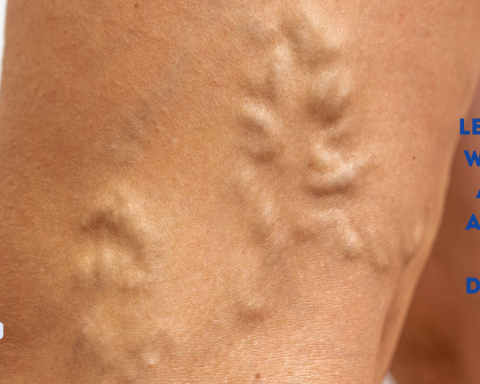Living with chronic pain can be frustrating, depressing, and angering—but it doesn’t have to be. While traditional medicine may not always work to relieve nagging symptoms, there are plenty of other techniques you can use to help ease chronic pain. Take some time to see if any of these methods can make a difference in your life.
Exercise to Release Endorphins
Physical activity releases chemicals in your brain called endorphins that dull pain and boost your mood. Ever heard of the famous runner’s high? Endorphins make that possible! While you probably won’t be signing up for a marathon when you’re dealing with chronic pain, exercise can certainly help you manage it.
Yoga, walking, rollerblading, and pilates are all great low-impact ways to get your body moving without putting too much stress on delicate joints. Not only can it help relieve pain, but it will put you in a better mindset to deal with your medical issues. Your body will soon become stronger and more resistant to seasonal illnesses, like the flu, so you won’t have to deal with colds on top of chronic pain.
Quit Smoking and Drinking
When you have chronic pain, alcohol and cigarettes can only make it worse. While you might think it’s helpful to drown out the sensations with substances, it will only put your body into more distress. Alcohol interrupts your natural sleep cycle, and the proper amount of sleep is critical for a body trying to heal itself.
Cigarettes can make breathing harder and your motor functions shakier, which is never helpful when you’re already dealing with other problems. If you cut these items out of your daily life, it will help your body focus more on dealing with the pain than with flushing toxins out of your system.
Use Natural Supplements
Across cultures, natural remedies have been used to promote a healthy lifestyle. Many plants, herbs, and extracts have beneficial effects—from settling an upset stomach to helping manage chronic pain. Arnica and Bromelain are popular supplements that can help bring down swelling and reduce if those are common side effects of your pain.
Ginger is great for upset stomachs. Peppermint essential oil can be rubbed on sore muscles to produce a soothing sensation. Fish oil is great at promoting heart health. Always remember to talk with your doctor before adding any natural supplements to your regimen.
Find Support Groups
1 in 5 people live with chronic pain, which means there are plenty of other patients that have similar stories and know how you feel. Talking about your experiences and finding a community to help lift you up during your dark moments can be incredibly soothing. While it may not take away the physical pain, it can certainly help heal your mind and your heart.
Stress usually exacerbates chronic pain, so eliminating as much stress as possible is a great step in the pain management process. If you aren’t comfortable sharing your thoughts with a group of people, individual therapists are a great alternative to work through any anger, sadness, guilt, or hopelessness you may feel.
Learn to Meditate
Meditation is the practice of quieting the mind and learning how to deal with the constant bombardment of thoughts we experience all day long. Learning how to control your breathing during mediation can be extremely useful for patients with chronic pain because it can help calm you down when the pain gets intense. This can be especially useful if you’re having trouble sleeping.
Some meditation practitioners claim that you can even control the level of pain you feel through constant practice. Whether or not that’s true, many people with chronic ailments find meditation to be a relaxing and helpful method for staying in touch with their body.
Try Acupuncture
Acupuncture has been linked to many health benefits, including easing chronic pain. Many people turn to acupuncture for anxiety relief, finding it to be a holistic approach that promotes a sense of calm and balance. The practice originated in China thousands of years ago and is commonly used to help with migraines, nausea menopausal hot flashes, and more. Keep in mind that the acupuncturist will place dozens of tiny needles in your skin, so if you have a phobia of needles, this probably isn’t the solution for you. If it doesn’t bother you, it could be a solution to daily pain because the effects of acupuncture have been proven to last for quite a while.
Apart from all these techniques, it always helps to stay in touch with your doctor while you deal with chronic pain. Advocate for yourself, go in for continual and make sure you have a good relationship with your healthcare provider.








